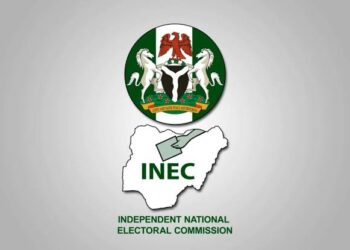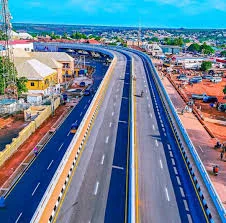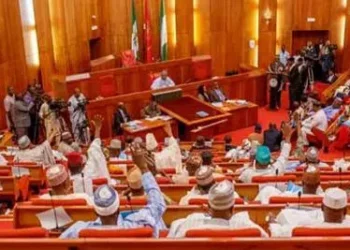The national president of the Nigerian Metallurgical Society (NMS), Dr. Fidelis Achiv, has called for an urgent overhaul of Nigeria’s mining laws to align with global best practices and ensure that states and local governments gain fairer economic benefits from mineral resources located within their territories.
Speaking at the 40th Annual Conference and General Meeting of the NMS in Abuja, themed “Unlocking Nigeria’s Mineral Resources: Exploration, Extraction and Value Addition,” in Abuja, Achiv said Nigeria’s current mining framework remains outdated and overly centralised, thereby preventing subnational governments from participating meaningfully in mineral resource management and industrial development.
He warned that unless the laws are reformed, Nigeria will continue to suffer huge revenue losses and governance gaps that discourage investment and transparency in the solid minerals sector.
According to him, the nation loses billions of naira annually through the export of unprocessed minerals — a trend that undermines industrialisation, job creation, and value addition.
“We must end the practice of exporting raw minerals without processing. The future of Nigeria’s mineral economy depends on local beneficiation, research-driven exploration, and stronger linkages with the manufacturing sector,” Achiv said.
He explained that despite being endowed with more than 44 distinct mineral resources, the country’s mining industry has yet to deliver industrial value proportionate to its potential.
“The time has come for Nigeria to turn its mineral endowment into industrial wealth through beneficiation and technology-driven manufacturing. Our vision is to see the metallurgical sector drive economic diversification and job creation — but this can only happen when policies translate into practical investments in local processing capacity, technology adoption, and skills development,” he added.
Achiv emphasised that reviving and modernising the Ajaokuta Steel Company remains critical to achieving Nigeria’s industrial self-sufficiency, describing the project as “a vital national asset capable of transforming Nigeria’s industrial base if concessioned to credible investors and managed professionally.”
He said the Society’s annual conference aims to strengthen collaboration between government, academia, and industry players to bridge the gap between research and industrial application.
On his part, the chief executive officer of Anthill Concept Limited, Emeka Okengwu, called for transparent guidelines on data and exploration rights, noting that the absence of clarity on ownership of exploration data discourages investors and complicates accountability.
“There should be no confusion about data ownership. Government must define this clearly to promote investor confidence and ensure that exploration data contributes to national resource mapping,” he said.
Okengwu further advised government to enact legal provisions mandating training and certification programmes for local mining professionals and ensure that local government representatives possess the technical knowledge to engage effectively in mining operations.
“Administrative power without technical understanding is ineffective. Local officials involved in mining oversight should have the competence to evaluate processes and ensure compliance with environmental and safety standards,” he said.
He also urged the federal government to develop robust legal protections for local government mining investments and create frameworks that prevent exploitation by foreign firms, saying these reforms would empower subnationals while maintaining regulatory oversight and investor confidence.
“These reforms will strike a balance between decentralisation and regulation. They will allow subnationals to build capacity while keeping national interests protected,” he added.
Also speaking, the executive chairman of Zangon Kataf Local Government Area of Kaduna State, Mr. Bege Gaiya, called for tighter oversight of mining operations to curb illegal activities, environmental degradation, and social conflicts in mineral-bearing communities.
Gaiya said unregulated mining has become a major source of pollution, deforestation, and insecurity, urging the federal government to apply the same level of discipline in the solid minerals sector as it does in the oil and gas industry.
“The federal government should apply the same level of oversight in the solid minerals sector as it does in the oil industry. Effective regulation will not only boost Nigeria’s GDP but also strengthen community relations and enhance national security,”Gaiya said.
He emphasised that stronger environmental safeguards and consistent engagement with host communities are essential to ensuring that mining contributes to sustainable development rather than becoming a source of social unrest.
Minister of Steel Development, Prince Shuaibu Audu, had earlier reaffirmed the federal government’s commitment to reviving Nigeria’s steel and metallurgical industry as a cornerstone for industrialisation and job creation. Represented by Christopher Wamje, he said ongoing reforms include the implementation of a 10-year Steel Industry Roadmap in collaboration with the World Bank, renewed efforts to revive Ajaokuta Steel Company, and the development of a local iron ore supply chain to reduce import dependence and save over $1 billion annually.
Audu added that the ministry is partnering with the Defence Industries Corporation of Nigeria (DICON) to produce military hardware locally and promote green steel production. He also highlighted plans to expand training and certification for metallurgical engineers and strengthen local testing capacity through a new National Metallurgical Laboratory.





